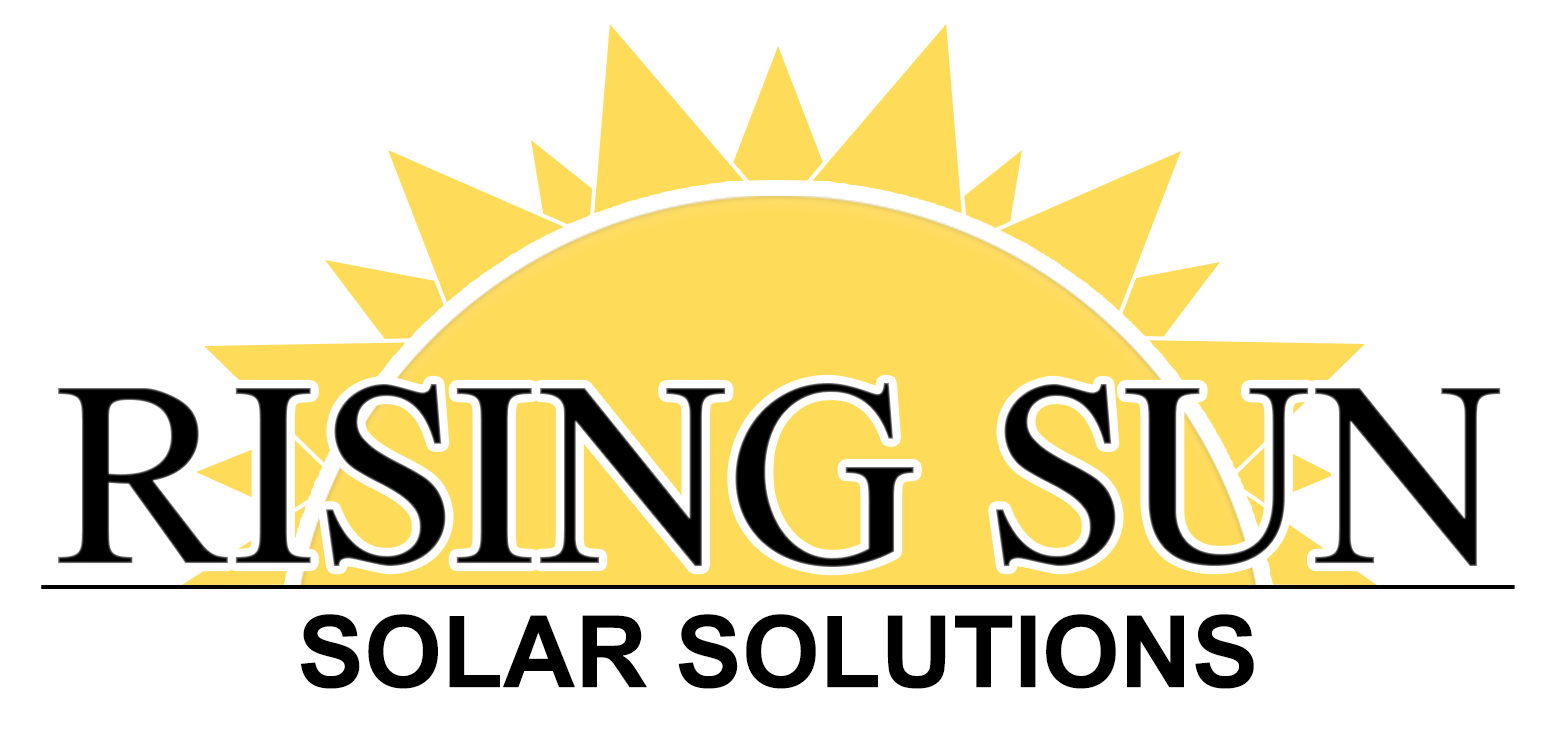About 1 out of every 4 U.S. households reported losing power at least once in a 12 month period during 2023. What’s worse, 70% of outage reports claim that at least one power cut lasted 6 hours or more.
While one power outage a year doesn’t seem like much, losing your electricity for 6+ hours during a heat wave or while in the middle of an important online meeting, for instance, could be more than inconvenient; it could completely interrupt your life.
What is the solution to keeping your lights on year round? You do have some options for backing up your power.
Let’s take a look at a solar battery vs. generator to see which one is most reliable to make your home immune to power outages.
Difference Between a Solar Battery and Generator
A solar battery and a generator serve the same primary function—providing backup power during outages—but they do so in very different ways.
- Solar Battery: A solar battery stores excess electricity generated by solar panels during the day and makes it available for use at night or during grid outages. It does not generate power on its own but rather acts as an energy reservoir. Solar batteries rely on renewable energy, reducing dependence on fossil fuels.
- Generator: A generator, on the other hand, produces electricity by converting fuel (such as gasoline, diesel, natural gas, or propane) into power. It provides an immediate source of backup power but requires fuel to operate. Generators come in different sizes, from portable models to whole-house standby units.
The key difference is that a solar battery is a storage solution for pre-existing power, while a generator actively creates power using fuel. Each has unique advantages and limitations, which we will explore in the next sections.
Pros and Cons of Solar Battery Storage
According to the Solar Energy Industries Association, solar energy storage is on the rise with a projection that 28% of new solar capacity will include storage by 2028. This expectation is a long leap from 2023’s solar-and-storage pairing statistic of less than 12%. So what makes solar battery storage popular and what are the challenges it faces? View the pros and cons when compared to generators below.
Pros of Solar Battery Storage
- Renewable Energy Source – Solar batteries store excess energy generated by solar panels, allowing homeowners to use clean, renewable power even when the sun isn’t shining.
- Lower Long-Term Costs – While the upfront cost is higher than generators, solar batteries eliminate the need for fuel and require minimal maintenance, leading to long-term savings.
- Silent Operation – Unlike gas generators, solar batteries operate silently, making them ideal for residential use.
- No Emissions – Solar battery storage produces zero emissions, reducing your carbon footprint and eliminating harmful fumes.
- Grid Independence – Solar batteries provide energy security during outages without relying on fossil fuels.
Cons of Solar Battery Storage
- High Initial Cost – Solar batteries require a significant upfront investment, especially when paired with a solar panel system.
- Limited Capacity – Most solar batteries store a finite amount of energy, which may not last through extended power outages.
- Slower Recharging – If solar generation is low due to bad weather, recharging the battery may take longer than expected.
- Lifespan Considerations – While modern batteries can last 10-15 years, they will eventually need to be replaced.
Do You Need a Generator with Solar Panels?
For homes equipped with solar panels, backup power is still a concern when the grid goes down. Standard grid-tied solar systems automatically shut off during blackouts to prevent back-feeding electricity into power lines, which could endanger repair crews. This means that even with solar panels, homeowners may still need a backup power source.
A solar battery system can store excess power generated during the day, providing energy at night or during outages. However, for extended blackouts, a generator may still be necessary. Some homeowners opt for a hybrid approach, using both a solar battery and a generator for greater reliability.
Gas Generator vs. Solar Generator
Another option if you want to stay solar but want the benefits of a generator is to buy a solar-powered generator. Let’s compare the difference between a gas generator vs. a solar generator.
Gas Generator: The Traditional Backup Solution
Gas-powered generators are a common choice for emergency power due to their high energy output and reliability.
Pros of Gas Generators:
- Immediate Power Supply – Gas generators provide on-demand power, making them effective for sudden blackouts.
- Higher Power Output – Large gas generators can power an entire home, including high-energy appliances.
- Lower Upfront Cost – Gas generators are generally cheaper to purchase than solar batteries.
Cons of Gas Generators:
- Fuel Dependency – Gas generators require gasoline, propane, or diesel, which may be difficult to obtain during emergencies.
- High Maintenance – Regular maintenance, including oil changes and fuel replenishment, is necessary.
- Noise Pollution – Gas generators can be loud, which may be disruptive to households and neighbors.
- Harmful Emissions – Gasoline and diesel generators produce carbon monoxide and other pollutants.
Solar Generator: A Cleaner Alternative
Solar generators work similarly to battery storage systems, using solar panels to collect energy and store it for later use.
Pros of Solar Generators:
- Renewable and Sustainable – Solar generators use free sunlight, reducing dependency on fossil fuels.
- Quiet Operation – Unlike gas generators, solar generators are silent.
- Minimal Maintenance – With no moving parts, solar generators require little maintenance.
- No Fuel Costs – Solar energy is free once the initial system is installed.
Cons of Solar Generators:
- Higher Initial Investment – The cost of a solar generator is higher than a gas generator of equivalent power output.
- Weather Dependent – If sunlight is limited, energy storage may be insufficient for long-term outages.
- Slower Recharge Rate – Unlike gas generators, which start immediately, solar generators need time to recharge.
Whole House Generator vs. Solar Battery System
When choosing between a whole-house generator and a solar battery system, homeowners should consider factors such as power needs, budget, and environmental impact.
Whole House Generator: Reliable but Fuel Dependent
Whole-house generators are permanently installed backup power systems that automatically turn on during an outage. They typically run on natural gas, propane, or diesel.
Advantages:
- Reliable and Automatic – Whole-house generators provide seamless power during blackouts.
- High Power Capacity – Can power an entire home, including HVAC systems and large appliances.
- Faster Energy Supply – Starts within seconds of a power outage.
Disadvantages:
- Fuel Requirements – Continuous operation depends on fuel availability.
- Ongoing Maintenance – Requires regular servicing and fuel storage.
- Environmental Concerns – Produces emissions and noise pollution.
Solar Battery Backup: Sustainable and Cost-Effective
A solar battery backup system allows homeowners to store excess solar energy and use it during outages.
Advantages:
- Lower Long-Term Costs – No fuel costs or extensive maintenance.
- Environmentally Friendly – Uses clean energy and reduces carbon footprint.
- Modular Expansion – Additional batteries can be added for greater capacity.
Disadvantages:
- High Upfront Cost – Solar batteries require a larger initial investment.
- Limited Power Supply – May not support all appliances during extended outages.
- Weather Dependency – Energy generation can be inconsistent on cloudy days.
Conclusion: Which Backup Power Solution is Right for You?
Choosing between a solar battery and a generator depends on your power needs, budget, and sustainability goals. If you prioritize clean energy and long-term savings, a solar battery backup system is the best choice, especially if you have solar panels already installed. However, if immediate power reliability and high energy output are your primary concerns, a generator—particularly a whole-house model—may be more suitable.
For homeowners seeking the best of both worlds, a hybrid approach that combines a solar battery with a generator can provide maximum energy security.
Get started with making your home as energy independent and reliable as possible by contacting us for a free estimate, whether you need a full solar panel system installed or would like to discuss battery backup options.


